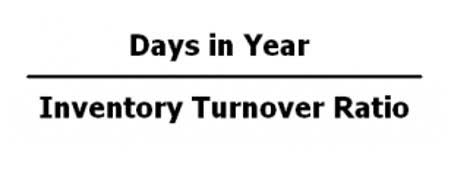
Under U.S. GAAP, the standardized reporting method is “accrual” accounting. Please read our review for more information on QuickBooks Online and our ratings for other top accounting software. Here’s a breakdown of each accounting method’s unique pros and cons, as well as who each method is best for. This may influence which products we review and write about (and where those products appear on the site), but it in no way affects our recommendations or advice, which are grounded in thousands of hours of research. Our partners cannot pay us to guarantee favorable reviews of their products or services.
It provides you and any outside parties with a much more accurate financial picture. Keep in mind that using the accrual method of accounting will require you to keep a closer eye on cash flow, which can be obscured when using accrual accounting. However, the cash basis method might overstate the health of a company that is cash-rich. That’s because it doesn’t record accounts payables that might exceed the cash on the books and the company’s current revenue stream. Under this method, revenue is reported on the income statement only when cash is received. The cash method is typically used by small businesses and for personal finances.
What Is Accrual Accounting?
For public companies and for any other organizations that prefer GAAP (generally accepted accounting principles) compliance, they have to follow the accrual accounting method. Accruals are the records of revenue and expenses that have been earned and incurred, but actual cash transactions are yet to occur. It involves non cash assets and liabilities that are recorded on the balance sheet. Accruals are important as they ensure accuracy in financial statements and reporting. Accrual accounting gives a better indication of business performance because it shows when income and expenses occurred.
- As a result, an investor might conclude the company is making a profit when, in reality, the company might be facing financial difficulties.
- In general, cash accounting is best for small businesses and businesses that do not carry inventory as part of their operations.
- Learn what outsourced accounting involves, its advantages, and whether or not it’s right for you.
- It is a liability account, because it indicates a payment that you have to make to a seller.
- The core underlying difference between the two methods is in the timing of transaction recordation.
- As organizations scale and work towards enhancing their customer experience, they leverage multiple payment methods and payment terms, which makes revenue recognition all the more complex.
- However, if you have plans to expand in the near future, want to bring investors into your business, or apply for bank financing, your best bet is to use the accrual accounting method.
If you’re not paying employees and don’t want to be tasked with tracking accounts payable and accounts receivable balances, the cash accounting method may be for you. In the world of accounting, there are two methods of recording accounting transactions, which are cash basis and accrual basis. Yes, if an organization needs to be compliant with GAAP, it the primary difference between accrual-basis and cash-basis accounting is: needs to utilize an accrual accounting method. Further, all publicly listed companies need to follow accrual accounting. Accrual accounting ensures that all the financial statements and reports generated are GAAP-compliant. To offset its complexity, organizations should leverage accounting software that transforms and automates accounting processes.
Cash- or Accrual-Basis Accounting?
Regardless of the fact that cash payment was never received, the revenue in such a case would be recognized under accrual accounting. Businesses using the accrual method to keep an accurate picture of accounts payable and receivable will maintain their ledgers according to the current status of a bill or invoice. If you, for example, have a long-term relationship with a particular client, there would be documentation that shows when the service was rendered, the date an invoice was generated and when the invoice was paid.
Ultimately, this method may become more expensive or time-consuming, making it harder for small businesses to use. In addition, because many businesses end up needing to switch over to the accrual method as they grow, or because they want to take on investors, it can make a lot of sense to start with accrual from the outset. It’s beneficial to sole proprietorships and small businesses because, most likely, it won’t require added staff (and related expenses) to use.
Examples of Accrual Accounting
Note that cash-basis accounting is used predominantly by private companies. For that reason, for distressed companies facing a liquidity shortage, cash-basis accounting is used for internal purposes to share with lenders and/or the Bankruptcy Court. Whichever method of accounting you choose, its important to stay consistent in applying that method to ensure accuracy.

